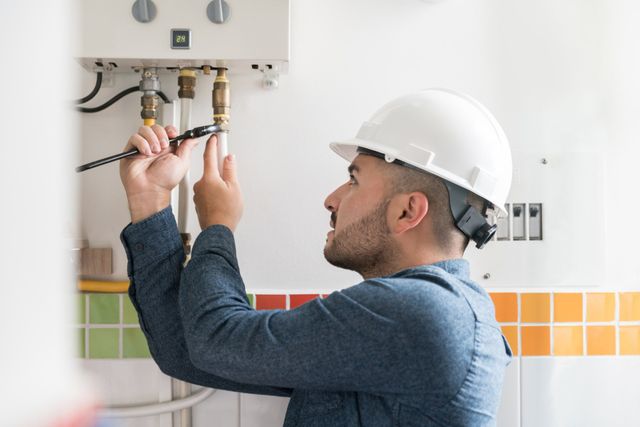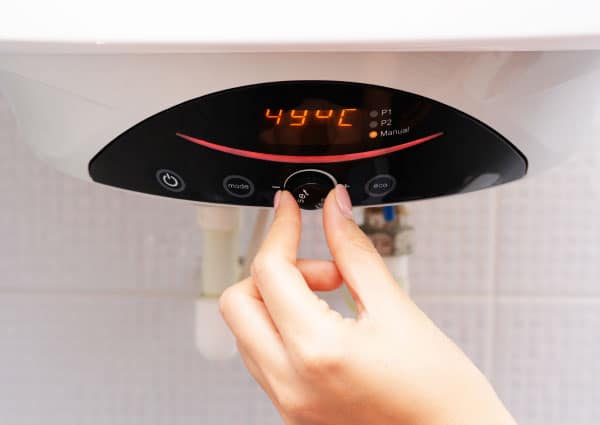Tackling the Typical Water Heater Crisis Scenarios
Tackling the Typical Water Heater Crisis Scenarios
Blog Article
What're your ideas regarding The Importance of Water Heater Maintenance?

A water heater is one of the most important basic devices that can be located in a house. With water heaters, you do not require to undergo the stress of home heating water manually every time there is a demand to take a bath, wash, or the recipes. However, there is constantly an opportunity that your water heater would break down similar to a lot of mechanical devices.
It is very important to note any kind of little malfunction and also tackle it swiftly prior to points get out of hand. Many times, your hot water heater starts to malfunction when there is an accumulation of sediments as a result of constant usage. As a safety measure, periodic flushing of your water heater is advised to prevent sediment accumulation and also prevent practical failing.
Usual water heater emergency situations and also how to handle them
Inadequate warm water
It might be that the water heater can't sustain the hot water demand for your apartment. You can upgrade your water heating system to one with a larger capability.
Varying water temperature level.
Your water heating unit might begin generating water of various temperature levels generally ice hot or cold hot. There may be a need to change either the home heating or the thermostat unit of your water heater.
Leaking hot water heater container.
A leaking tank could be an indicator of rust. It might trigger damage to the flooring, wall and electrical tools around it. You can even be at risk of having your apartment swamped. In this circumstance, you ought to switch off your hot water heater, allow it to cool, and meticulously search for the resource of the problem. Sometimes, all you need to do is to tighten up a few screws or pipe links in cases of small leaks. If this doesn't work and the leak continues, you could require to use the solutions of a professional for an appropriate substitute.
Stained or stinky water
You need to understand if the problem is from the tank or the water source when this happens. If there is no amusing odor when you run cold water, after that you are certain that it is your water heater that is damaged. The odiferous water can be caused by rust or the accumulation of germs or sediments in the water heater container. You can try flushing out your storage tank or changing the anode if the problem persists when you observe this. The feature of the anode is to clean out germs from your container. Given that the anode pole replacement requires a thorough knowledge of your water heating unit, you will need the help of an expert.
Conclusion
Some house owners ignore little warning as well as minor faults in their hot water heater unit. This only causes more damage as well as a possible total malfunction of your appliance. You should handle your water heater faults as soon as they come up to avoid more expenses and unnecessary emergency troubles.
With water heating systems, you don't require to go via the anxiety of heating water manually every time there is a demand to take a bath, do the washing, or the dishes. It may be that the water heating unit can't sustain the hot water demand for your apartment or condo. Your water heater can begin producing water of different temperatures typically ice scalding or cold hot. If there is no funny smell when you run cold water, then you are certain that it is your water heater that is faulty. The stinky water can be created by corrosion or the buildup of germs or sediments in the water heater tank.
What’s Wrong With My Water Heater?
Not Enough Hot Water
You probably encounter this problem in the shower or while washing dishes. As you run your water, you’ll notice it starting to cool down. Turning up the hot faucet may not work, or it may only heat the water for a short period. Your hot water probably comes back and works normally one or two hours after you use it up.
If you’ve never had enough hot water, your heater may be too small for your home. If you haven’t had a problem until recently, there’s probably something’s wrong with your heater’s thermostat. Try adjusting it to see if you can feel a difference. Even if the thermostat’s working, the heating element itself could have burnt out. It’s also possible that a clog has restricted water flow into or out of the heater. Luckily, none of these problems are hard to fix, as long as you call them in early.
Water is Too Hot
Unregulated water heaters can make water dangerously hot. You probably have this problem if you’ve been scalded by your hot water. It’s also a likely culprit if you have trouble getting your faucets to produce a comfortable temperature. This problem is easy to fix, but it can also be a serious health hazard if you don’t address it. If you think your water is too hot, don’t doubt yourself; look into it!
Start by finding your heater’s thermostat and mark its position with a pen. Turn the thermostat to a cooler setting. Wait a couple hours to see if the problem is solved. If it isn’t, listen for boiling in the tank and look for water that comes out of the faucet steaming. In those cases, your temperature-pressure relief valve may be malfunctioning. This is a serious problem that can be dangerous, so you should have it looked at right away.
Discolored or Smelly Water
If all your water looks rusty or smells weird, there’s probably a problem with your pipes. If only your hot water looks weird, however, your water heater is probably at fault. Hot water discoloration comes in several varieties. It could look orange or brown-ish, taste rusty, or feel grainy. It could also look yellow or green-ish and taste gross or feel slimy. Either way, it’s a sign that there’s something wrong with your water heater’s tank.
Usually, hot water discoloration means sediment has built up in your tank. Sediment is made up of hardened minerals that accumulate on the inside of the water heater’s walls. When enough sediment builds up, it causes all kinds of problems–including your discolored water. Try flushing your water heater tank to clean out built up sediment. If the water still tastes rusty, your tank’s rust-preventing anode rod may have worn out. A pro can replace an anode rod easily, but without one, your tank could rust beyond repair relatively quickly.
Leaking
Water heaters can leak from several different places, and each leak means something different. If the leak is coming from a pipe above the heater, it’s possible the tank itself hasn’t been compromised. The cold inlet, hot outlet, and T&P pipes could all leak from above. Try tightening the problematic valve. If that doesn’t work, then the valve or pipe will have to be replaced.
If the leak is coming from the bottom of the tank, it’s important to determine exactly where it is. The leak could be coming out of the drain valve or your T&P valve below the tank. You can replace those valves and preserve the tank itself. If you notice the water tank itself leaking, however, that probably means it’s corroded beyond the point-of-no-return. Leaking water heaters are a big deal, so you should get yours replaced ASAP.
https://www.punctualplumberdallas.com/blog/whats-wrong-water-heater/

Do you appreciate reading about Common Hot Water Heater Problems? Leave feedback further down. We'd be pleased to see your views about this posting. We are looking forward that you come back again before long. Make sure you take a moment to distribute this page if you enjoyed it. Many thanks for going through it.
Water woes? Connect. Report this page